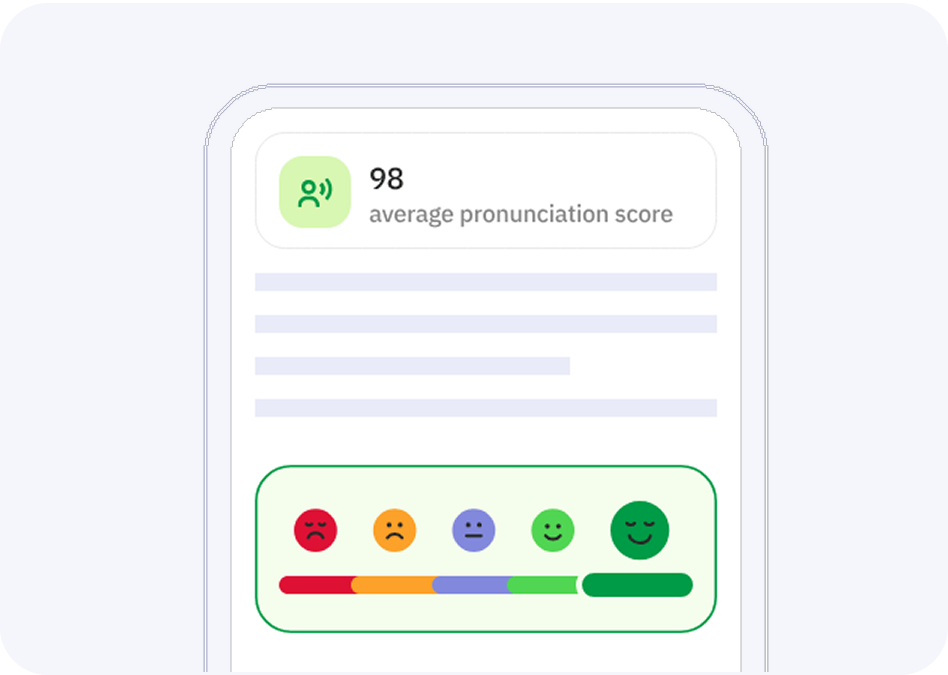Practice Italian Speaking
Mastering a new language requires consistent practice and real-world application, especially when it comes to speaking. Italian, with its melodic intonations and expressive gestures, is no exception. To truly excel in communicating in Italian, immersing oneself in opportunities to speak and converse is crucial. With innovative tools like Talkpal AI, individuals looking to enhance their Italian speaking skills can engage in practical, conversational practice anytime. This guide outlines ten effective methods to help you practice Italian speaking using various resources and strategies, ensuring your learning journey is both efficient and enjoyable.

The talkpal difference

Personalized Education
Every student has a distinct approach to acquiring knowledge. By leveraging Talkpal’s advanced algorithms, we analyze the learning patterns of millions of users at once to build highly effective educational tools. This data allows us to tailor the experience specifically to your individual interests and proficiency level to ensure maximum retention.

Cutting-Edge Technology
Our central mission is to democratize access to custom-tailored language training. We achieve this by utilizing the most recent breakthroughs in artificial intelligence and software development to bring a premier, personalized tutor experience to everyone, regardless of where they are located.

Making Learning Fun
We have transformed the study process into something truly entertaining. Since staying motivated with online courses can often be difficult, we designed Talkpal to be incredibly immersive. The platform is so engaging that many users prefer to practice real-life speaking scenarios with us rather than playing video games.
LANGUAGE LEARNING EXCELLENCE
The most efficient way to learn a language
Try Talkpal for freeEnhance Your Italian Speaking Skills
1. Utilize Language Learning Apps
Modern technology offers a plethora of apps designed to aid language learners. Platforms like Talkpal AI specifically cater to those aiming to practice Italian speaking. These apps use AI-driven programs to simulate real-life conversations and provide instant feedback on pronunciation, intonation, and usage. By regularly engaging with these tools, learners can practice speaking Italian in a structured, supportive environment that mimics natural communication scenarios.
2. Join Italian Language Groups
Community learning is a powerful tool for language acquisition. Join local or online Italian-speaking groups where you can practice communicating with fellow learners and native speakers. These groups often host meet-ups, conversation hours, and practice sessions, providing a relaxed atmosphere to practice speaking Italian, make mistakes, and receive constructive feedback, which is crucial for improvement.
3. Immerse Yourself with Italian Media
Immersing yourself in Italian media such as movies, TV shows, music, and podcasts is an enjoyable way to practice Italian speaking. By listening to native speakers, you absorb the natural flow of conversation, common expressions, and cultural nuances. Try pausing and repeating after characters to practice pronunciation and intonation. Over time, this method can significantly improve your ability to understand and respond in Italian.
4. Language Exchange Partners
Pair up with an Italian language exchange partner who wants to learn your language. This reciprocal approach allows both participants to practice speaking in their target languages. Such interactions help in mastering conversational Italian, as they involve negotiation of meaning and real-time correction, which are vital components of language learning.
5. Travel to Italian-speaking Regions
If possible, travel to Italy or other Italian-speaking regions. This immersion experience compels you to practice Italian speaking daily, offering unmatched opportunities to learn colloquially and in context. Surrounding yourself with the language can accelerate learning speeds and deepen linguistic competence.
6. Take Italian Speaking Classes
Enrolling in Italian speaking classes offered by universities or community colleges can provide a structured learning process. Qualified instructors teach nuances of language and give personalized feedback on your speaking skills. Along with practicing in class, you are often given assignments that encourage further practice at home.
7. Use Social Media and Forums
Engage in Italian-speaking social media platforms and forums. Interacting with native speakers and fellow learners on sites like Facebook, Twitter, or Italian-specific forums can provide informal practice opportunities. Participate in discussions, post comments, and ask questions in Italian to practice constructing and communicating your thoughts in real-time.
8. Create an Italian Speaking Club
Initiate or join an Italian speaking club where members regularly meet to converse in Italian. This can be set up amongst friends or within your local community. Regular meetings will not only provide consistent practice but also expose you to various dialects and speaking styles, enhancing your conversational skills and confidence.
9. Practice Writing and Speaking
Combine writing practice with speaking by writing down dialogues or short speeches, then read them aloud. This practice helps in building vocabulary and improving pronunciation. Record your speaking sessions to identify areas of improvement and track your progress over time.
10. Use Italian in Daily Tasks
Integrate Italian speaking into your daily routine. Practice narrating your activities, like cooking or grocery shopping, in Italian. This method helps you to think in Italian spontaneously, improving both your fluency and your ability to converse naturally.
By incorporating these practices into your study routine, your ability to speak Italian fluently and confidently will continually improve. Remember, consistent practice is key to mastering any language.
The most efficient way to learn a language
Try Talkpal for freeFrequently Asked Questions
What is the best way to practice Italian speaking as a beginner?
How often should I practice speaking Italian to become fluent?
Can using language apps improve my Italian speaking skills?
Is it effective to practice speaking Italian alone, or should I always practice with others?







